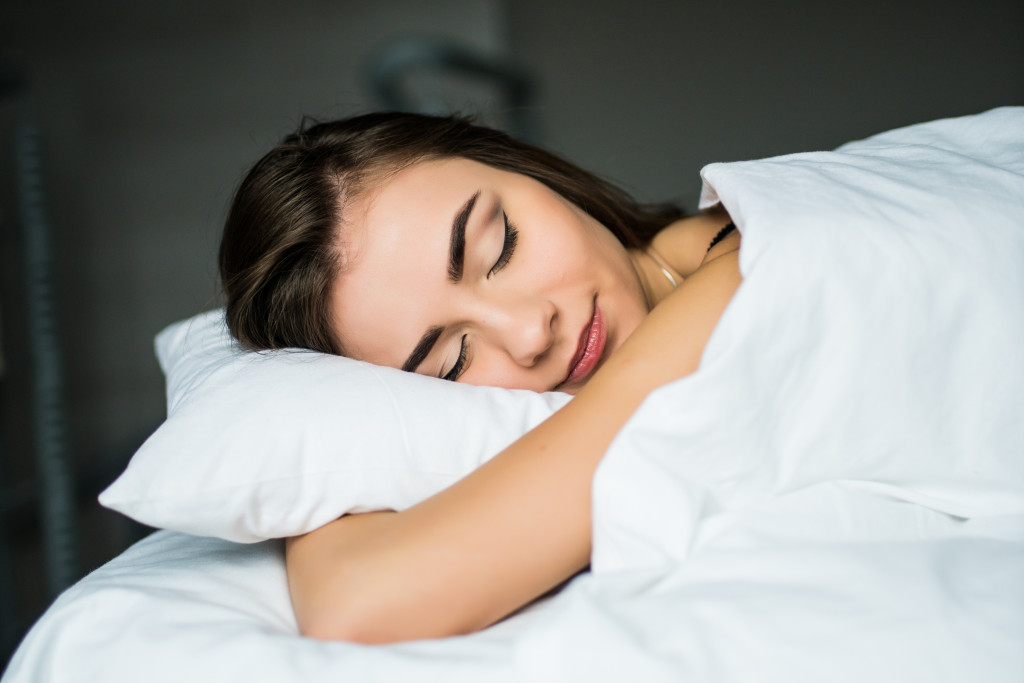Regular exercise and a balanced diet are just as essential as having a good night’s sleep. Studies show that many people nowadays don’t get enough sleep at night. While some do get the required number of hours, the sleep they get is not restful. This dramatically affects their mental and physical health. Sleep problems can be exacerbated by many factors, such as stress and responsibilities.
Researchers continue to study the effects of stress and other factors in people’s sleep patterns and behaviors. Many of these research facilities partner with organizations to continue fundraising for patient advocacy groups and fund their studies and trials. This, in turn, will help the scientific and medical community find more answers and solutions to sleep problems and other conditions.
As scientists continue to dive into the realm of sleep or the lack thereof, here are some helpful pieces of advice you can try out.
-
Avoid drinking too much caffeine
Caffeine is a potent stimulant. It can linger in your body for up to eight hours. Thus, it is best to avoid it in the late afternoon or at night, as it may interfere with the quality of your sleep. If you crave it, try drinking a decaffeinated one.
-
Create a relaxing atmosphere
Create an environment that is conducive to sleeping. You can inspect your bedroom to see if it is suitable enough for you to have a good night’s rest. A chilly, dark, and silent environment is usually helpful in attaining excellent sleep, so make sure your bedroom is tranquil, calm, tidy, and comfy. You can always make a setting that fits your needs.
-
Avoid eating late at night
Avoid eating anything heavy or substantial within a few hours before going to bed. You may be kept awake by your discomfort. Late-night eating can also harm the production of your natural sleeping hormone, particularly melatonin. As a result, it is preferable to eat the right amount of food at the right time.
-
Clear your mind
Some people experiment with various relaxation techniques before going to bed — this aids in clearing their minds and reducing their anxieties. Being organized and creating priorities might also help you manage your stress. You can also achieve relaxation and calmness by listening to soothing music, reading a book, and taking a hot bath. Meditation is also one of the most effective methods for reducing anxiety. Overall, several techniques help you relax; all you have to do is figure out which one works best for you.

-
Have regular exercise but not before bedtime
Exercise is one of the most effective strategies to get a good night’s sleep and help with insomnia symptoms. However, exercising late at night might enhance alertness chemicals such as epinephrine and adrenaline, causing you to be more awake at night. So, keep your workout to a minimum during the day and your relaxation at night.
-
Avoid drinking alcohol
Consuming too much alcohol at night can affect your sleeping patterns. It can also decrease your sleeping hormones, thus increasing disruptions in your sleep. All of this might create havoc in your internal body clock. Hence, it is best to avoid consuming too much of it, especially at bedtime.
-
Limit your exposure to blue light in the evening
Cell phones and computers, for example, emit a significant quantity of blue light. This blue light confuses your brain into thinking it’s still daytime, causing sleep disruption. It reduces the amount of melatonin in your body, making sleeping harder. You may avoid this by lowering the amount of blue light emitted by your devices or not using them two hours before bedtime.
-
Get checked for sleeping disorders
Sleep apnea, for example, is a sleeping disorder in which breathing is interrupted and inconsistent during sleeping. It may have an impact on the quality of your sleep. Other problems that affect shift workers include sleep movement disorders and circadian rhythm sleep/wake disorders. If you have any of these symptoms, you should get medical advice from a reputable healthcare provider.
-
Consider taking melatonin
Melatonin is a sleeping hormone that signals to your brain when it’s time to sleep — taking 2 mg before bed enhances sleep quality and vitality the next day and assists people in falling asleep faster. Because melatonin can change brain chemistry, it’s best to consult with a doctor before use.
Sleep is critical for overall wellness. You can avoid obesity, type 2 diabetes, cardiovascular diseases, and other disorders by getting enough sleep. Keep in mind that if you have problems sleeping frequently, you should consult your healthcare practitioner right away to identify and treat any underlying disorders. It is strongly advised that you prioritize your sleep and use some of the suggestions above to better your life.

